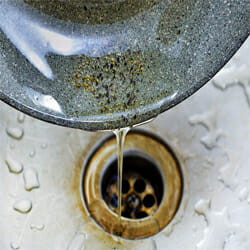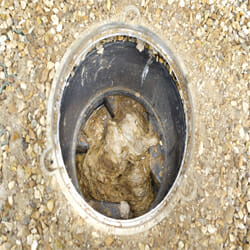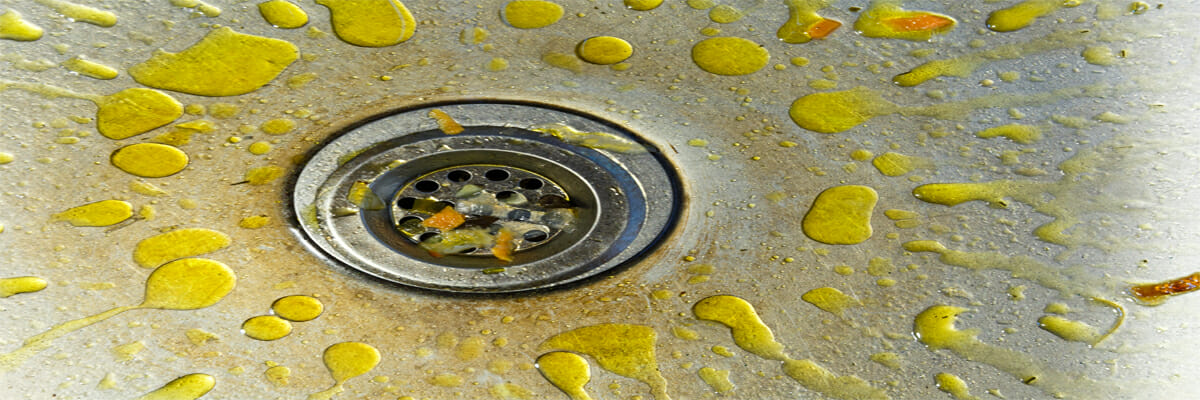Most people use refined vegetable oil or other oils in their cooking when they deep-fry or grill their delicious meals. However, one of the most serious issues related to this is that people often pour their leftover oil down the drain because they think it’s the easiest way to dispose of it. You should know that it may be easy to dispose of the oil this way. But it is very dangerous for your drain, and you end up having serious consequences. Here, we are going to tell you about the consequences you can face when you pour oil down your drain and what to do to avoid them.
Repercussions of Pouring Oil into the Drain
After finishing your cooking for yourself and your family, your first move is to always place your pot or pan in the sink, but in that case, the remaining oil in your utensil directly goes to your drain when it’s time to clean your pot. But one thing you have to keep in mind is that pouring oil down your drain can be harmful to your drain and even to the environment. Pouring oil down your drain is not the best way to dispose of it, but unfortunately, it happens very often. It’s a basic fact that everyone
Especially fat and grease from your food and other liquid remnants from your cooking get poured down the drain. Oil can accumulate if it continues to pass down your drain. It can build up as a fat, solid mass that also narrows the diameter of your pipe, preventing smoothing and quick drainage. And another key point you must remember is that the longer your oil accumulates, the harder it is to clear out, especially if you live in an old apartment or older building. However, you must think that a plumber can fix all these problems, but you have to keep in mind that a plumber can only fix the accessible pipes, but the grease and oil you wash down from your sink can travel much further than your drain and make it difficult or impossible for plumbers to clean it up.
Here Are Some Serious Issues Due to Oil Pouring into Drains:
1. Risk of Fatbergs
When you pour the oil down the drain, it hardens on the pipe and can create fatbergs, which eventually lead to shutdowns. As oil travels down your pipe, it also leaves a residue that builds up over time. Another thing is that sewers are always full of chemicals, and when that chemical comes in contact with the cooking oil, they react together and form a waxy substance that is known as fatbergs. These fatbergs can keep on growing, become heavier in weight, and cause serious damage.
It is also an illegal activity to pour down oil in your drain because it can cause serious scenarios as it can possibly shut down the drain in many areas and create problems for many people. It can also create clogging problems because clogs are usually created when multiple groups of undissolved substances join together and if this happens frequently then the problem becomes so big.
2. Wastewater Pumped Back Up
As fatbergs get accumulated over a period of time, they can clog your sewer, and there is a bigger chance that the wastewater from your sewer can get pumped up back into your home because this is the only way for a sewer to get relief from the pressure of water that builds up due to clogging. If this clogging doesn’t get resolved, then the water will definitely get pumped
3. Issues in the Local Water Treatment Process
Due to clogging or fatbergs present in your sewer line, the water treatment process also gets difficult because the presence of grease and non-dissolving material takes so much time in the treatment of local wastewater and eventually affects the water quality in your local area. But it is very important for you to keep in mind that it depends upon your area, like how many people pour their remaining oil into the drain.
4. Effect on the Environment
Due to big fatbergs, the pipelines can get damaged because these soapy masses can clog the pipe and affect its working. They also have the power to burst out the pipelines and eventually lead to backwash flooding until they can be resolved or removed. The breaking of pipelines creates sanitary issues in your area and affects the environment because the wastewater that can get out due to bursting contains harmful chemicals that are harmful to our soil, plants, or environment.
5. Financial Consequences of Pouring Oil into the Drain
It is very expensive to remove cooking oil from your drain line. It is one of the major expenses for any homeowner. Plumbers are usually charged 200 to 400 dollars for the first hour of their labour for removing cooking oil. If sewers back up into your home because of clogging by cooking oil, then it costs you much more, and even your costly property can lose its value. With that, cooking at home not only faces financial problems due to this, but commercial food venues also face these types of consequences, and one of the major issues is that these kinds of problems for not discharging used cooking oil in a safe way
Related Articles:
Things To Do Instead of Pouring Oil Down the Drain
- It is best for you to handle your cooking oil in a very appropriate way and also in an environmentally friendly manner. Instead of directly putting your pan or pot into your sink and pouring your leftover oil down the drain, It is better for you to use a container when your cooking oil gets cool. You can pour it into a container like a glass jar or any other container. You can save it for recycling, and you can even try to reuse it for your cooking while it is still good.
- For recycling, if you didn’t find any local organisations, you can simply wait for your cooking oil to solidify and then toss it into the trash. It is much better than pouring it down a drain.
- For recycling, if you find specific sites, then it is important for you to keep some important things in mind. It is important to strain the oil before taking it to specialised sites to remove any food particles from it. Also, you need to store it in a sealed container and then deliver it to your local collection site. They can use this oil to recycle it into biodiesel and keep it out of landfills.
- You can use towels or paper towels to wipe off excessive oil from your pan and then throw that towel into the trash. By doing this, you can even wipe off a small amount of oil from your utensil, because even a small amount of grease over a period of time can cause serious consequences.
Conclusion
For recycling and reusing your oil, you can look up some effective ways because it is very important for you to think that your sanitary process or your act of not pouring the oil down the drain can make a big difference. If you think that everyone else in your neighbourhood does this, then it is your responsibility to take action and avoid pouring oil down the drain. It is always best to remember the consequences of this, and you can follow up on many waste management habits in your kitchen. Making your work well and keeping your environment clean is all in your hands, so you have to work according to that.


 Enquire
Enquire